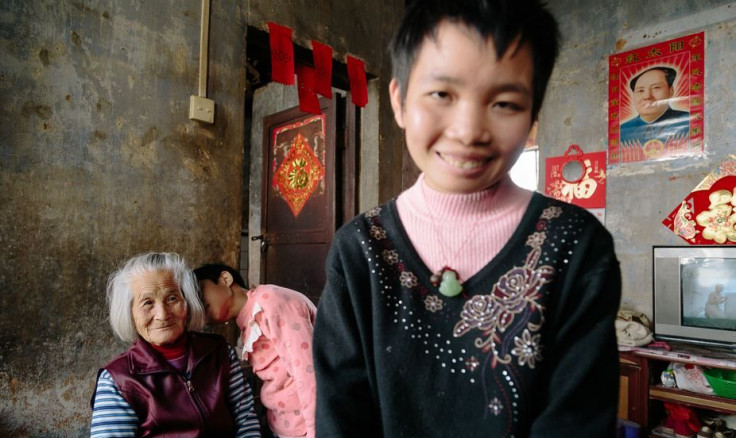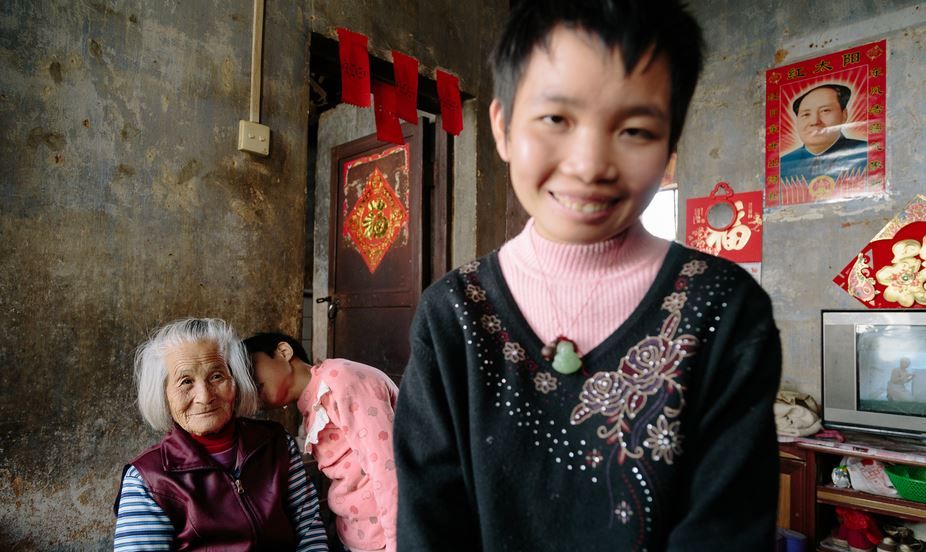Mental Illness In China: Young Photographer Captures 'Invisible' Population To Raise Awareness, Reduce Stigma

Liu Yuyang, 23, used to think people suffering from mental illness were “monsters.” It wasn’t until his recent project, At Home With Mental Illness, that he found the opposite to be true.
“He was very thin with no hair,” Yuyang told NPR of a mentally ill person he had encountered when he was younger. “He would throw rubbish at the kids [passing by]. I saw him attack a kid from the primary school. This is why I thought of them as monsters.”
But after Liu followed the daily lives of six families struggling with mental illness in two cities of the Guangdong province in China, he realized mentally ill people were just that: people. Not only that, but these people seemed to be struggling more than anyone realized. One woman he photographed, Mei Lin (pictured above), supports her daughter, son, and two granddaughters — all of whom are mentally ill. Mei, at 83, picks up her family’s medicine, goes grocery shopping, in addition to cooking and cleaning.
"I don't think people realize the efforts that family members try to [put in] to take care the patient,” Liu said. “I know [Mei Lin] loves her daughter and granddaughters, but it's so hard. She could have enjoyed her life. So I think of it as kind of a tragedy."
In 2014, NPR cited 173 million people were living with some sort of diagnosable mental disorder, with a majority of patients (158 million) having never received treatment. They’re a group too often ignored by society, Liu said, making mental illness “kind of invisible in our lives.”
Liu's project wont him the Ian Parry scholarship, which is awarded to young photgraphers. With this money, he hopes to continue exploring "the unique relationship between the mentally ill, their families, and society at large." As he tells NPR, he's not finished yet.

Published by Medicaldaily.com



























